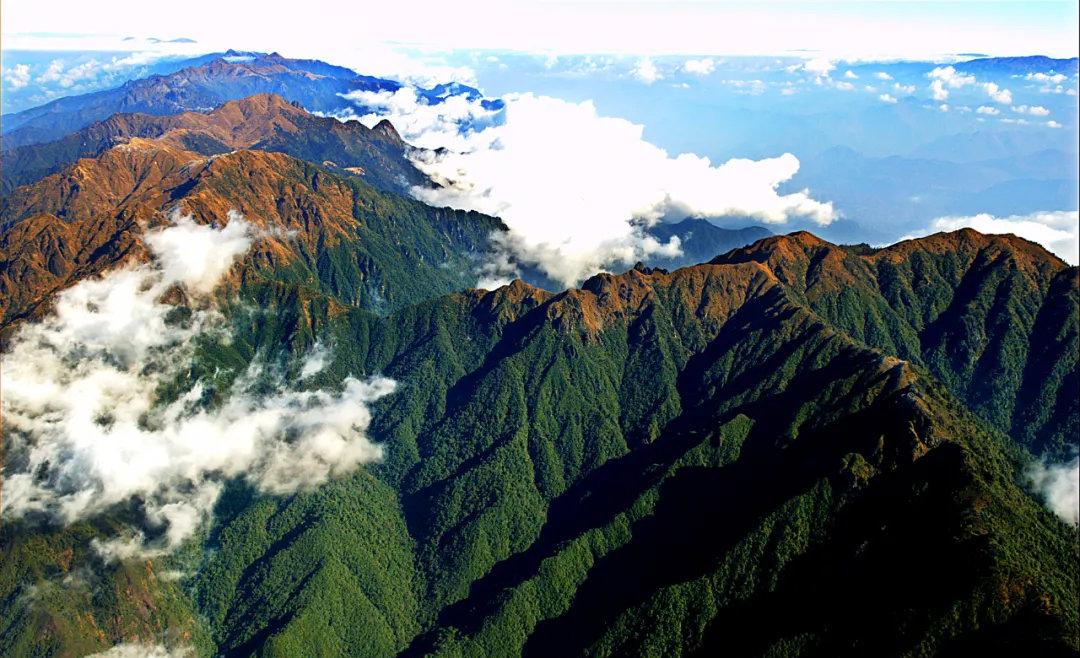Tengchong is located in the western border of Yunnan, on the western slope of the southern section of Gaoligong Mountain, with a total area of 5,845 square kilometers. As an internationally renowned "species gene bank", Gaoligong Mountain is one of the global biodiversity hotspots.

Photo by Du Xiaohong
A paradise for beasts
At present, as many as 70 species of mammals have been recorded in Tengchong Gaoligong Mountain. Here you will see tropical species such as coconut cats, giant squirrels, etc. At the same time, there are also temperate species, such as red pandas and antelopes, highlighting the irreplaceable and important role played by Gaoligong Mountain in the process of species evolution and diffusion, and is a veritable "beast paradise".
Photo by zhao chao, a red panda
Gaoligongling cattle
A refuge for life
In recent years, researchers have brought exciting news from time to time during the animal survey of Tengchong Gaoligong Mountain: the discovery of a new record of Chinese mammals, the red iguana; the rediscovery of the cloud cat that has disappeared in Yunnan for more than 30 years; the first shooting of the activity of large rare mammals in the southern section of Gaoligong Mountain; the confirmation that Tengchong Gaoligong Mountain is inhabited by 7 groups of Gaoligong gibbons, which is the largest subpopule in China.
Cloud cat
Red iguana (Source: Tengchong Branch of Gaoligong Mountain National Nature Conservation Bureau, Yunnan)
Tianxing gibbon (Gao Ligong white-browed gibbon) Xi Zhinong photo
Most wild animals are very alert, extremely alert, and hide without a trace at the slightest "wind and grass movement"; so it is not easy to see their "true face of Lushan" in the wild.
Below, we have compiled a number of photos of mammal species taken by field monitoring, and together we can enjoy and understand the beautiful creatures that have lived in the mountains for generations.
Primates
At present, more than ten species of primates have been recorded in Gaoligong Mountain in China, which is the richest primate resource in China.
Bee Monkey (data map) Xinhua Net hair (Mao San photo)
Tibetan Chief Monkey Tang Jiahe Photo by Xu Jian
Bear Monkey
Fei's langur (data map) Xinhua Net hair (Mao San photo)
Hat-wearing langur Peng Jiansheng photo
Rodents
In addition, there are not a few rodents under the Gaoligong Mountain, and there are various types of rodents such as gray-headed shrews, Yunnan giant squirrels, red-bellied squirrels, woolly ear flying squirrels, orange-bellied long-snouted squirrels, Chinese bamboo rats and so on.
Yunnan giant squirrel (Source: Nature Magazine)
Large woodpeckers and red-bellied squirrels prey on food. Similar scenes are staged every day in Gaoligong Mountain. Photography by Hu Yuncheng
Other mammals
The species and number of mammals are important reference indicators of ecological health in an area. According to incomplete statistics, there are more than 200 species of mammals living in Gaoligong mountain national nature reserve.
ocelot
black bear
Himalayan impala
Red Chamois
Wild boar (infrared camera shooting at Artemisia Station)
Chinese iguana
Under the Gaoligong Mountain, all things grow, the mountains and streams sing, it is like a mother, nourishing the people of one side, composing one long song of life after another!
Compiled from: Tengchong Beast Guide
Image: Integrated network